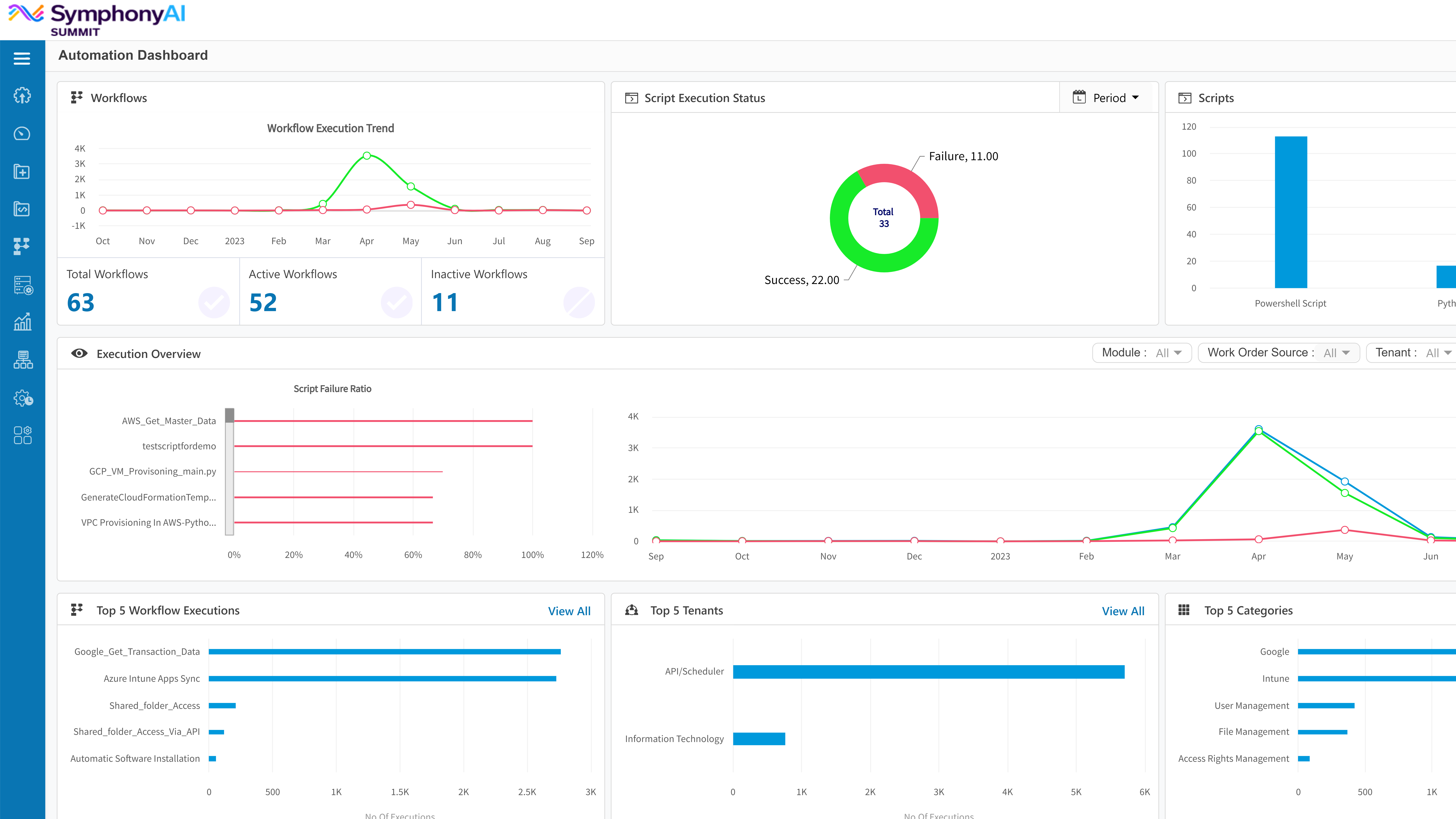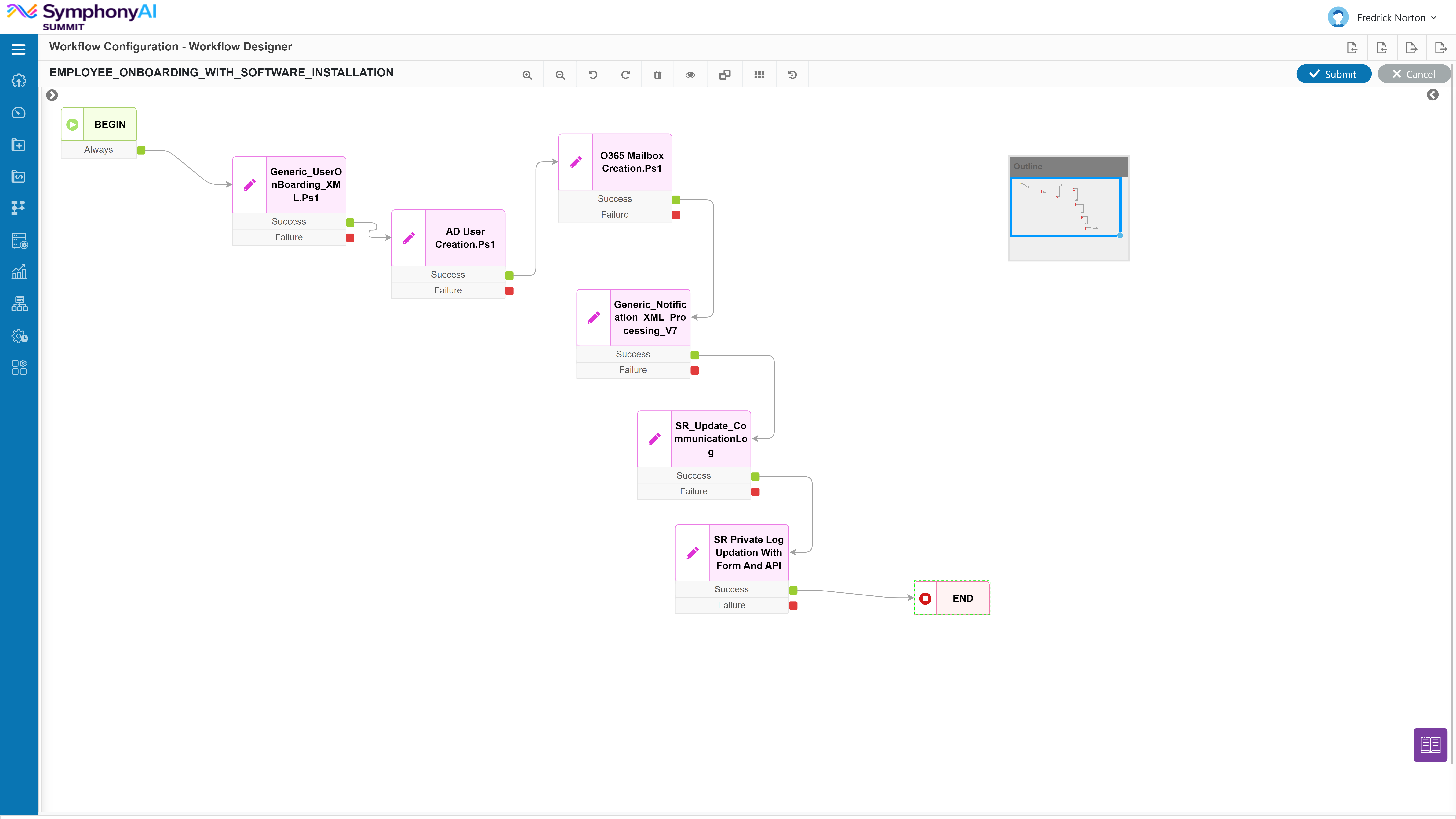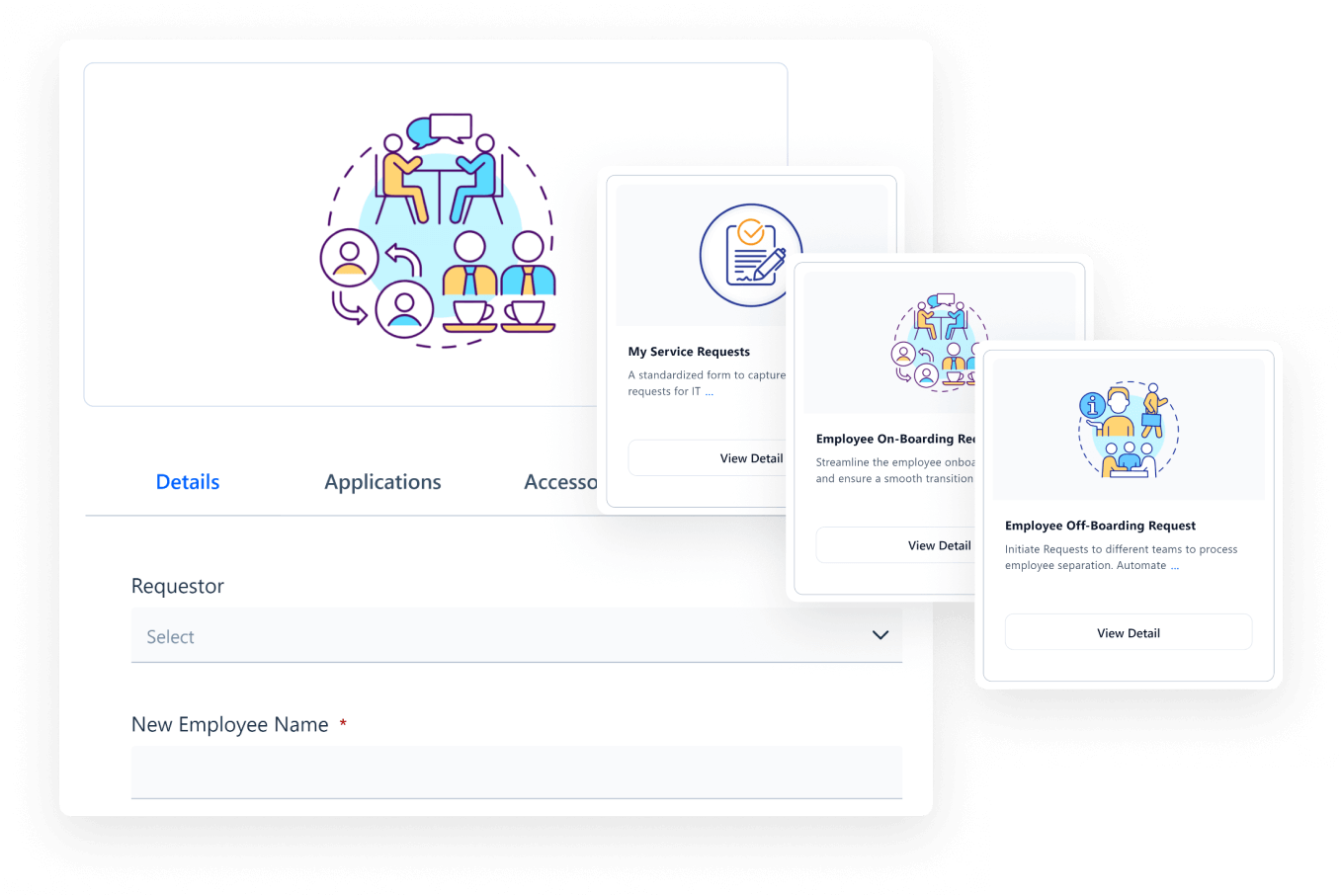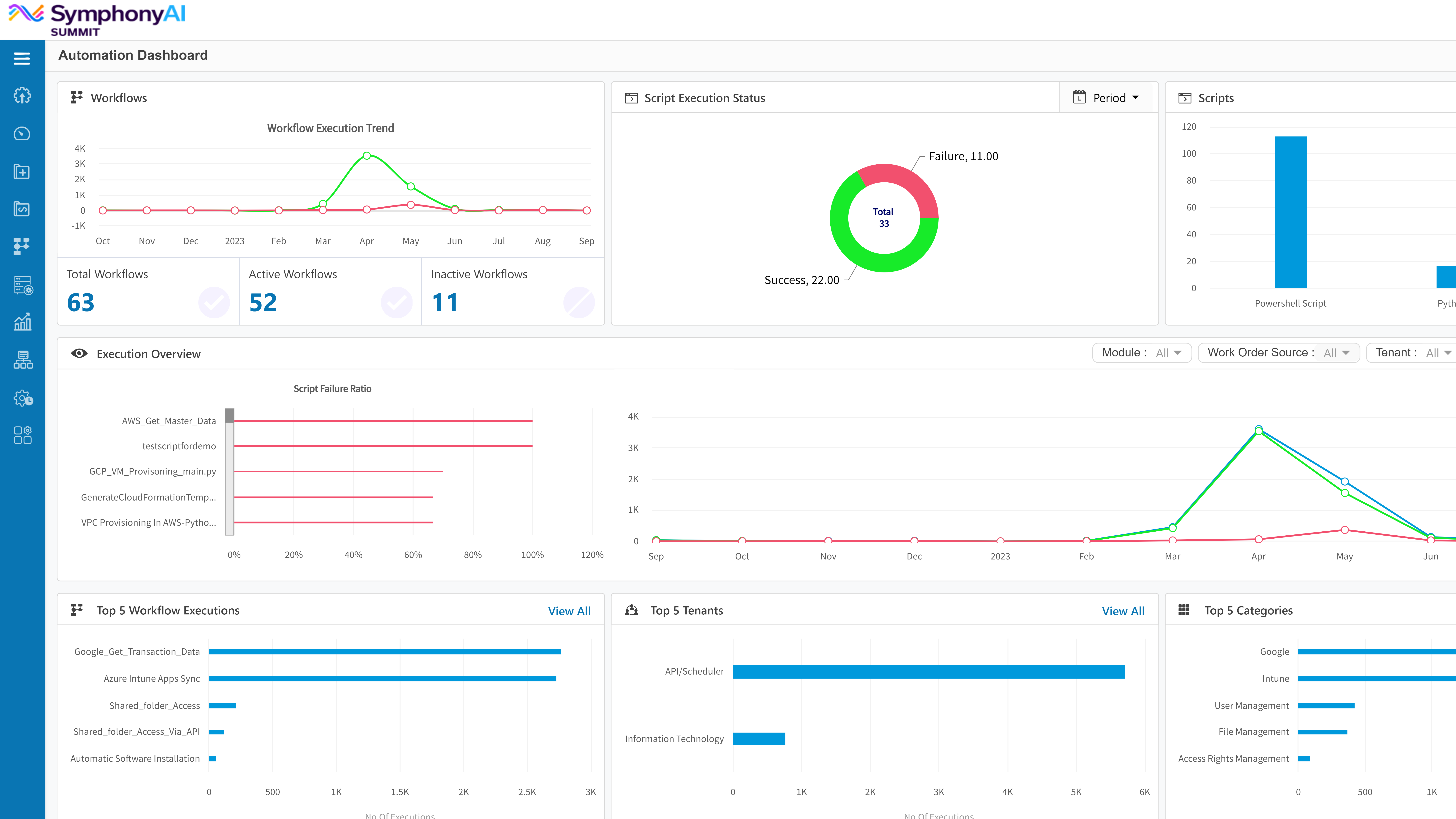Service Automation
Accelerate business value
Automate service processes to scale faster than ever. Work smarter, not harder.
Improve service delivery
Improve business performance by responding faster to service requests or incidents. SymphonyAI Service Automation helps you focus on business-critical tasks, helping to achieve business goals faster.
Increase service agility
Bring efficiency, speed, and expanded capacity to your organization with SymphonyAI Service Automation. Eliminate manual error-prone tasks to provide faster, predictable results.
Transform employee experience
Reduce service handing time and respond real-time on employee service needs. With SymphonyAI Service Automation, you can respond to incidents before they become larger business issues.
Measure and grow business value
Use the transformative power of SymphonyAI Service Automation to connect systems, processes, and people to drive better enterprise efficiency and business value.

Improve service delivery
Improve business performance by responding faster to service requests or incidents. SymphonyAI Service Automation helps you focus on business-critical tasks, helping to achieve business goals faster.

Increase service agility
Bring efficiency, speed, and expanded capacity to your organization with SymphonyAI Service Automation. Eliminate manual error-prone tasks to provide faster, predictable results.

Transform employee experience
Reduce service handing time and respond real-time on employee service needs. With SymphonyAI Service Automation, you can respond to incidents before they become larger business issues.

Measure and grow business value
Use the transformative power of SymphonyAI Service Automation to connect systems, processes, and people to drive better enterprise efficiency and business value.
Key Service Automation features
Agentless architecture
Reduce resource consumption, simplify deployment and management, and enhance scalability and flexibility. Automate tasks seamlessly across diverse environments and platforms.
Integration out of the box
Seamlessly manage data from third-party applications with 40+ built-in integrations and 180+ use cases libraries, enabling efficient and streamlined data management. Use cases include IIS Application migration from on-premise to AWS, Azure VM provisioning with Post Build Tasks, Deploy Docker images on the Azure cloud, create or add user in Google Workspace, Google Workspace Data Sync, and more.
Built-in compliance policies
Create your own custom policy and remediation with 185+ built-in compliance policies for endpoints, with automated remediation framework.
Secure APIs
SymphonyAI Service Automation provides secure APIs for integration with external systems, ensuring secure access via robust authentication mechanisms.
Multiple scripting language support
SymphonyAI Service Automation supports scripting languages including Powershell, VB, Python, Pearl, and batch.
Live feed
Real-time execution tracking for easy workflow and script management and to provide execution insights in real-time.
Automated task execution
Schedule task specific execution through workflow for specific need or for recurring activities report generation, application maintenance etc.
Event-based execution
Execution workflow based on service request or incident.
Automation scheduler
The SymphonyAI Service Automation scheduler initiates workflows automatically when scheduler/time conditions are met, without any human intervention.
Custom workflows
Customize your workflow with the SymphonyAI Service Automation integration pack of more than 250 action/scripts.
Explore all SymphonyAI IT/ESM products
Deliver delightful service experience powered by AI. Redefine employee experience and unleash productivity with AI-powered IT and Enterprise Service workflows with a future-ready platform.
Maximize your ROI on enterprise IT assets. Gain complete control and visibility of your hardware assets and software licenses and enforce compliance.
Turn every conversation into an exceptional experience. Resolve issues faster, improve productivity, and save costs with the power of AI.
Related resources
-
Blog
Technology Innovation of the Year for SymphonyAI’s Service Automation Solution
Enterprise IT -
Blog
Using AI to Improve ITSM Processes
Enterprise IT -
White paper
Why service management success needs the right approach to AI and people
Enterprise IT -
Blog
Leveraging ITSM, AI, and ESM for Digital Evolution
Enterprise IT
-
Latest news
Digitate Announces Strategic Alliance with SymphonyAI to Fuel Enterprise Automation at Scale
12.13.2023Innovative New ITSM/ESM Platform, SymphonyAI Summit Apex, Simplifies Work and Enhances User Experience
10.17.2023SymphonyAI Launches Summit Apex
10.17.2023SymphonyAI Summit Launches Revolutionary New Apex Platform with Predictive and Generative AI that Redefines ITSM/ESM, Delivers Delightful User Experiences, and Transforms Enterprise Service Delivery
10.17.2023